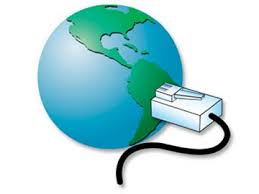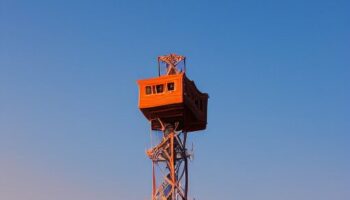In India, Internet services were launched by erstwhile VSNL (now Tata Communications) somewhere in year 1995. In Nov 1998, DoT decided to open the sector for private players first time in India.
A) Original ISP License Regulation (Release 24.08.07):
Twelve years after launch of Internet Services in India & nine years after opening the sector for private players, DoT came up with first license document Internet Service Guideline 24-08-07.
Some salient points mentioned in license norms are as below:
- Only two types of ISP Licenses awarded namely Category “A” which is entire territory of Union of India and Category “B”, any of 23 territories. Please see Annex I
- Prior Category “C” licensees are given option to migrate to Cat “A” or Cat “B” or remain as Cat “C”.
- No limit on number of licenses in given service area by licensor.
- On time entry fee of Rs 20 Lakh for Category “A” & Rs 10 Lakh for Category “B”
- Annual License Fee @6{af589cdba9d77786c8c861317dbad60bba1e2ebbf56e2ffab874a1b59fde9ce3} AGR subject to minimum Rs 50k & Rs 10k per annum per service area for Category “A” & “B” licenses.
- FBG (Financial Bank Guarantee) of Rs 10 Lakh & Rs 1 Lakh for Category “A” & “B” Licenses, valid for one year.
- PBG (Performance Bank Guarantee) of Rs 2 Cr & Rs 20 Lakh for Category “A” & “B” Licenses, valid for two years.
- License includes services of Internet Access including IPTV and Internet Telephony in restricted form.
- Services can include Internet Services to any VSAT Subscriber, Unified Messaging services also.
- Licensee has to provide services within 24 months from date of signing agreement.
- Company having ISP License & Net worth of Rs 100 Cr can provide approved contents on IPTV.
- ISP should provide IP Address conforming present & future IP Addressing schemes.
- License issued will be valid for 15 years unless or otherwise terminated with extension granted for not more than 5 years.
- Last mile connectivity will be freely permitted by Fiber, Radio Communication or underground Copper Cables. For Radio/Microwave WPC Clearance is mandatory.
- Licensee should adhere to QoS norms specified by DoT/TRAI & other regulatory bodies.
- At each node/International Gateway with outbound connection of 2MBps, a monitoring center is must. If Outbound connection is less than 2MBps capacity, a LAN must be setup at least with office space of 10 feet by 10 feet.
- The applicant should be an Indian Company registered under Indian Companies Act 1956 with FDI ceiling of 74{af589cdba9d77786c8c861317dbad60bba1e2ebbf56e2ffab874a1b59fde9ce3}.
- Application should be submitted in duplicate in prescribed form for each area separately
- Applicant can apply for licenses in more than one service area subject to fulfillment of other criteria.
A.1) ISP License with IPTV:
The above license regulations are further amended for provision of IPTV services with revised norms can be checked at IPTV_06.03.2009.
A.2) ISP License with Wi-Fi Public Hot-Spots:
Soon after revised IPTV Services norm, DoT came up with revised document for provision of Wi-Fi services (Public Hotspots & Private Connectivity) under ISP License.
The Salient points of the amendments for Wi-Fi are:
- ISP in wired & wireless form of Internet services, should provide secure & registered Wi-Fi connectivity through Login ID & Password only.
- Licensee should deploy CPE Wired/Wireless at subscriber end.
- Login IDs should be unique prohibiting multiple connections with same Login ID & Password.
- At public venues, bulk Login IDs should be provided for controlled distribution via centralized server which could be POP location of the service provider.
- A temporary Login ID & Password issued at public Wi-Fi Hotspots should have Photo ID of user or registration via SMS.
Other minor details of Wi-Fi services can be found in the Wi- fi Direction to ISP 23 Feb 09_3.
In Oct 2009, DoT has extended the date of implementation of Wi-Fi Services till 15 Dec 2009 for delicensed frequency band.
A.3) Revised ISP License with amendments (present form)
On 25 Jan 2010, DoT has revised following license terms of ISP License issued on 24 Aug 2007. These are present norms of ISP Licensing in India:
- ISP License should be valid of 20 years.
- Extension of 5 years on each occasion.
- Entry fee for Category “A” & Category “B” license is revised to Rs 30 Lakh & Rs 15 Lakh respectively.
- Restriction on Transfer of License by Licensee without prior permission of Licensor.
- DTH Service providers permitted to provide Receive only Internet Service after obtaining ISP License, which would then allow subscribers of DTH Provider to download data through DTH.
- Access to Internet through Authorised Cable Operator permitted without additional licensing subject to applicable cable laws.
- Last mile connectivity is freely permitted within local area by all means mentioned in original document.
- Licensee should adhere to all DoT & TRAI QoS norms.
All other norms remained intact could be found at L A after 25.01.10 (1).
A.4) Regulations for deployment of expansion of ISP Licenses in other service areas
DoT later also came up revised regulation document over security concerns over expansion of Telecom Services in various zones of Country.
A.5) Revision of uniform license fee rate for ISP & ISP-IT License Holder:
Finally DoT has come up amendment in uniform license fee rate of 8{af589cdba9d77786c8c861317dbad60bba1e2ebbf56e2ffab874a1b59fde9ce3} of AGR for all ISP & ISP-IT licenses for year 2013-14 and onwards in two steps.
A.6) ISP License Documents Checklist:
Document checklist for applying ISP License with modifications can be found at here.
B) Original Regulations towards certified equipment in ISP Rollout:
All security clearance norms with amendments for procurement of equipment for ISP can be check at 1, 2 & 3.
B.1) Amendments in Original Regulations towards certified equipment in ISP Rollout:
DoT later came up with important amendments in equipment procurement norms for ISP & ISP with Internet Telephony Licenses with below salient points:
- Licensee should be responsible of security of its network & should define policy on Network Forensics, Hardening, Penetration Test, Risk Assessment to fix problems and should submit the policy within 30 days from date of amendment for record.
- Network Audit per year from security point of view from Network Audit & Certification Agency.
- The Network Audits should comply ISO 15408 & ISO 27001 standards with entire responsibility of network.
- Licensee should induct only those equipment complying ISO 15408 (IT & IT Related), ISO 27001 (Information Security management related) & 3GPP & 3GPP2 (Telecom & Telecom Security). The licensee equipment should be certified by agencies before procurement from 1 Apr 2013 (now changed to 1 Oct 2013). The certificate would be valid for 10 years.
- Licensee should have facilities for monitoring intrusion, attacks & frauds and should be created within 12 months of amendments.
- A Penalty upto Rs 50 Cr will be levied for any security breach caused by licensee’s inadequacies.
Interested parties can refer to Broadband Policy 2004 for more information where minimum speed of 256 kbps from Point of Presence should be guaranteed.
Also, list of ISP Licensees as on year 2011 can be found at ISP_licences_31.12.11[1].
C) IPv6 Roadmap:
Albeit missed deadline, all ISP are mandated to migrate to IPv6 addressing from Dec 2011 and a task force is devised to help ISPs & Government bodies for migration.
The new licensees who will be entering into Internet provisioning from year 2013, should comply completely to IPv6 form of addressing from start without any delay.
Please check IPv6 Roadmap II & Roadmap I for more details.
Annex I
List of Territories of Category “A” License & Category “B” License can be found below:
Category A: This covers the territorial jurisdiction of the Union of India except specified areas that may be notified to be excluded from time to time.
Category B: West Bengal, Andhra Pradesh, Assam, Bihar, Gujarat, Haryana, Himachal Pradesh, Jammu & Kashmir, Karnataka, Kerala, Madhya Pradesh, Maharashtra, North East, Orissa, Punjab, Rajasthan, Tamil Nadu, Uttar Pradesh-West, Uttar Pradesh-East, Chennai, Delhi, Kolkata, Mumbai.
Various form of ISP Networks namely Tier-I & Tier-II details can be found at Wikipedia Document, albeit no such mention is found in DoT literature.
About Author:
Atul Deshpande, is Founder & Writer a Telecomblogs Consulting Solutions. He specializes in Indoor Solutions & Small Cells.
He can be contacted at atuldeshpande@telecomblogs.in
You can also download the copy of this article in PDF format here Telecomblogs WhitePaper_ISP License & Regulation in India_Complete Overview.






